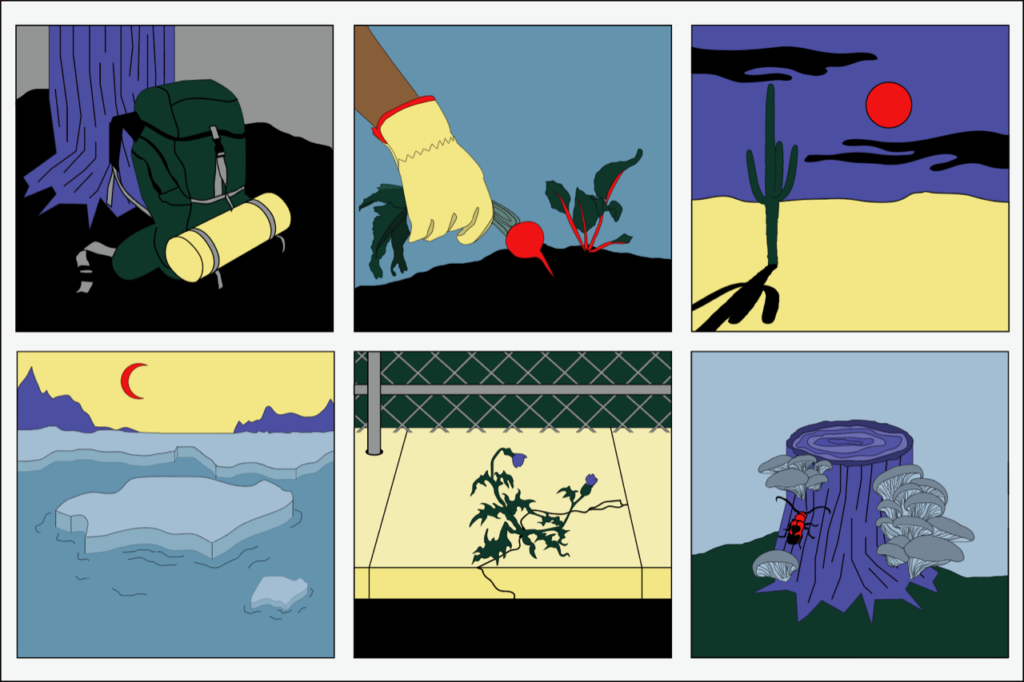
The Most Difficult Places
In early spring, I went rafting. The first day on the water, it snowed. Spring, fickle, like she is. It was my omen of good fortune, flakes melting on my cheeks as a patch of blue sky peeked through a cluster of white clouds, as we floated over slow rapids. The skies opened up, and the snow subsided.
We were on the Owyhee in Southeast Oregon. The window of opportunity to run the river is only a few weeks long, when the threshold of temperature still transitions between warm and cold. A week before we left, the levels were too low for us to put into the water. A week after we left, they dropped again. We ran the river straddling between impossibilities.
For four days, we observed the weather patterns, as hail, sleet, sunshine, and more snow filled the bottom of our raft. In the mornings, we feasted on coffee, eggs, and potatoes. We boiled hot water to thaw out our frozen shoes. We pulled our bodies into dry suits over our layers of wool, fleece and puff. We became masters of packing, unpacking, strapping drybags to each other, clipping and unclipping carabiners with frigid, clammy fingers. We made food happen, fast. We ate it even faster.
The gorges were tall, with layers of formations in contrasting shades of mauve, purple, gray and brown. We walked to a mesa one evening before dinner, and wandered towards a canyoned tunnel. A slot canyon, they’re called. When I touched the surface, the clay stuck to my fingers. I am soft in the Spring too, I thought. Over thousands of years, how can something stay so vulnerable, yet remain so unwavering? Soft enough to shift into something new, but seemingly unchanging. Softness is this land’s strength, what makes it so sturdy, yet so beautiful.
I slept with two sleeping bags and a hot water bottle pressed against my body, underneath a flickering of aurora borealis. I marveled at the capacity of this physical body, of the places we can go, should we choose to go. I didn’t feel like I belonged out there, at times. That the wild might snap me up if my mind might wander too far. If I took a non-purposeful step, if I ignored the map, if, on kayak, I didn’t keep up with my crew. We were in the wild, and we were alone. We saw no other parties the entire trip.
And I loved the ache of my muscles, digging deep into the water with my oar. On a class IV rapid, we paddled hard, our raft’s bow bumped against a canyon wall, and an oar bent. On another class IV, we clambered to our high point, and escaped an capsize. We were a unit, swift, quick, unafraid. I crave that feeling everyday. I suppose that’s the true gift of the wild.
Most weeks, days, months, I feel the pull to live a life dictated by the rhythms of nature, unbothered by daily demands. The most pristine places to access happen to be the most difficult to access. Routines grounded me to a single place, but the call for balance called me to upheave regularities and to aerate the body. Spending time with friends who wanted the same validated my craving. I am not alone in wanting to go to the difficult places, the places that we must prepare for months to visit, the places where we must move with intention and respect. Remoteness is a luxury in these years, I know. To find the ones with the know-how, the investment of gear and time, transportation, research, and safety equipment. The most remote places are difficult because they capture our energy in the most delightful way; there is no room to capture much else. And I prefer it that way.
We witness the polarities of the elements meshing seamlessly everyday. We experience what the remote wild and these difficult places have to offer, whether we are drinking a tepid coffee in our backyard, or on a canoe in the British Columbia. When the rain stops. When you step outside and a faded rainbow shares itself on the horizon. When the full moon rises on a warm summer night on an empty street. When soft grains of sand make their way in between your toes on a balmy beach day. When snowflakes float onto an eyelash, and the frost of the cold turns our cheeks pink. When a garden flourishes for the first time, and the bloom of wildflowers overwhelms the hills with fresh color. All I know is that I hope that my life is filled with these moments, whether I am in the remote wild or not.
Suggested Reading
-
The Green Millennial
-
Featured • The Green Millennial
-
The Green Millennial

